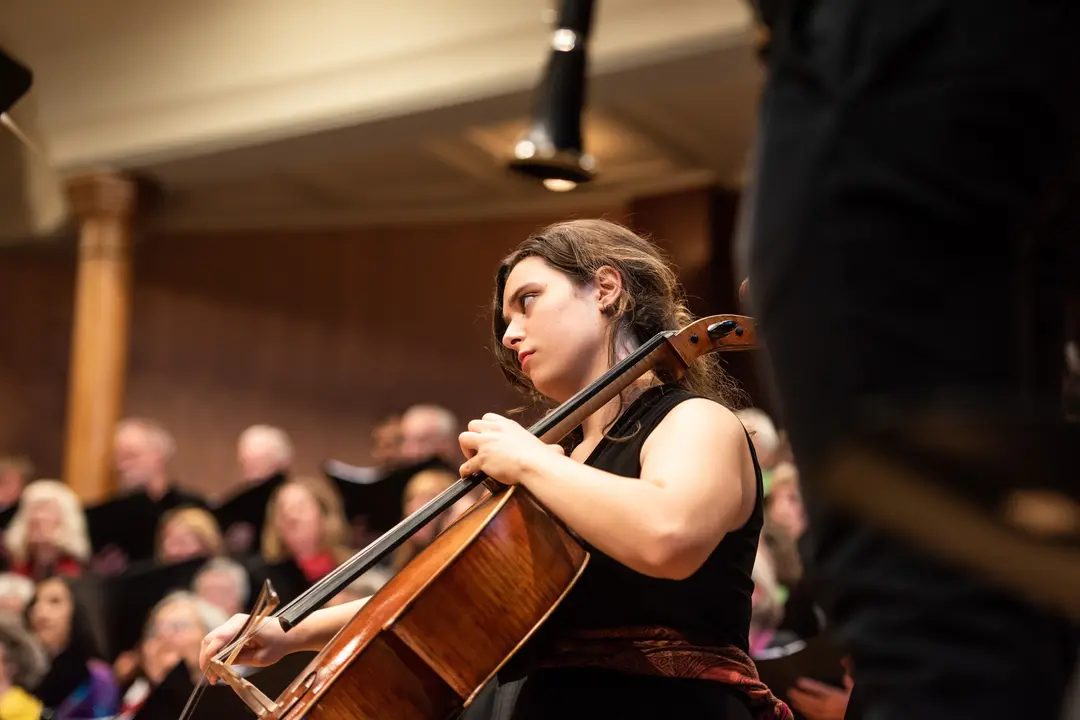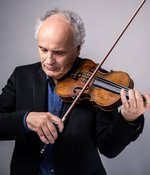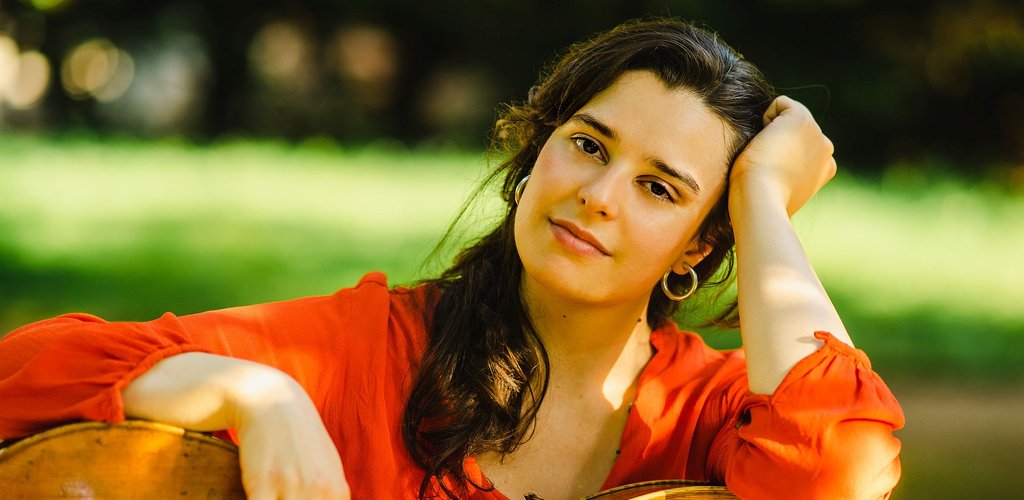Alma Hernán Benedí, Spanish cellist and one of the winners of the 2024 Sándor Végh Competition – a chamber music competition organized for members of the Budapest Festival Orchestra – will perform the solo part of Carl Philipp Emanuel Bach’s Cello Concerto No. 1 in A minor with the BFO in early June.
Júlia Váradi: How did you first come into contact with the BFO and Iván Fischer?
Alma Hernán Benedí: I had already attended several concerts of the BFO conducted by Iván Fischer, and I always found them deeply inspiring and meaningful. At the same time, I was frequently playing duos with one of the orchestra’s concertmasters.
One night, about four years ago, after a concert, we happened to mention to Iván Fischer how wonderful it would be to work together on Kodály’s Duo. To our surprise, he immediately responded: “That would be great, tomorrow at 8 a.m.?”
We hadn’t played the piece in a long time, but of course we couldn’t pass up such an opportunity. The next morning, we played the Duo for him. After we finished, he said he really liked it, and added that he would like me to play in the orchestra. I wasn’t expecting that at all. I was overjoyed, and that moment marked the beginning of this magical journey.
What were your impressions of the Festival Orchestra’s Sándor Végh Competition, where you had a very successful performance?
When I first heard about the competition, I thought it was a fantastic idea. To motivate the musicians, strengthen the bonds between them, and offer the chance to perform as a soloist with such an outstanding group. I had no particular expectation, but I was really eager to try.
The musicians who accompanied me were incredibly supportive, and I will always be grateful to them. On the day of the competition, the atmosphere was very friendly, and I felt that the jury genuinely wanted to enjoy the music. They created a space that felt safe and encouraging to play in.
Overall, it was a truly inspiring experience.
When and why did you choose the cello as the most important instrument in your life? What was the “prelude” to that decision in your early childhood?
I started playing the piano when I was three, though in those early years, I probably just learned how to sit properly on the piano bench. One day, when I was about five, I was at my piano teacher’s house. I wanted to go to the bathroom, but I accidentally opened the wrong door. It was her daughter’s room; she was a cellist. She was not there, but her cello was out of its case, waiting to be played.
Without thinking twice, I picked up the cello and the bow and began to “play.” I have to admit, if a child did that with my cello today, I probably wouldn’t be too happy, but it's true that such small moments can almost decide one’s future.
My piano teacher and my mother came in and asked what I was doing. “I want to be a cellist,” I said.
I continued playing both instruments for several years, but the personal voice I discovered through the cello completely resonated with me. Looking back now, I realize how much every music teacher I have had has shaped the musician I am today.

What do you consider the most important thing to understand about Carl Philipp Emanuel Bach – both his music and his role as a composer, as the second gifted son of the “great” Bach and an important figure in the transition from Baroque to Romanticism?
Even though we often think of C. P. E. Bach primarily as J. S. Bach’s son, it’s worth shifting our perspective. Mozart once said about him:
“He is the father, we are the children. Those of us who know anything at all learned it from him.”
C. P. E. Bach truly built a bridge between generations and musical eras. His work not only marked the transition from the Baroque to the Classical period but also anticipated the emotional depth of Romanticism. I deeply admire those who are ahead of their time, especially in an age when tradition was so dominant.
He developed the style known as Empfindsamer Stil (“sensitive style”), characterized by sharp contrasts, expressive dynamics, and emotional intensity. His music flows naturally and draws the listener in. I can truly say that discovering his work has been one of the most meaningful musical encounters of my life.
Could you highlight what you find most special and important in the piece you’re going to perform in Budapest?
I remember the first time I heard this piece. I was completely enchanted. I listened to it over and over, then went straight to my cello to try playing it by ear, even before seeing the score. It left a deep impression on me, and even years later, it still resonates just as strongly.
C. P. E. Bach composed this concerto in 1750, the same year his father, J. S. Bach, passed away. I hear in it both despair and suffering, but also moments where light and hope seem to rise from the pain. To me, it carries an incredibly powerful message both musically and existentially.
I love exploring this concerto. The dramatic shifts in character, the intensity of feeling, and the way it captures the depth of human experience.
I assume you already know Budapest, the capital you’ll be returning to soon to perform this beautiful piece. What are your impressions of the city?
To me, Budapest embodies both majesty and fine detail: beauty, history, nostalgia, and a strong sense of identity. Every time I walk along the Danube, I’m overwhelmed by how many beautiful things exist side by side, each with its own unique charm.
I also love the many hidden corners the city offers. Places that reveal entirely different perspectives on the bridges and the skyline. And of course, Budapest also means its people, whom I find to be sincere and warm-hearted. And above all, it means its musicians, who are passionate, honest, brave, adventurous, and truly inspiring.


